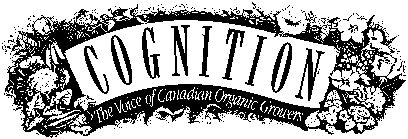

Cognition Index | Virtual Library
| Magazine Rack
Search
| Join the Ecological Solutions Roundtable
MONTREAL COMMUNITY GARDENS
by Alain Blondin
The City of Montreal has the most ambitious and successful community gardening project in Canada. Some 10,000 urban gardeners have access to 6,700 garden plots, each about 200 square feet in size, divided among 73 different community gardens. The program, initiated in 1975, is run by the municipal Service des loisirs, des parcs et du developpement communautaire. (I should clarify here that the program is happening within the City of Montreal, population 600,000, the small central core of the huge urban area known as greater Montreal.)
The purpose of the Montreal Community Garden Program is to give urban Montrealers an opportunity to keep in touch with nature through an instructive and recreational activity; to allow them to grow their own vegetables economically; and to foster a community spirit through sharing, friendship and group activities.
Guy Grégoire and Daniel Reid of the Montreal Community Garden Program explained how a community garden works. Only residents of the city may join the program, and no more than one plot is allocated to each civic address.
The number of actual garden plots in each community garden varies from 10 to 250. So popular is the program that often new applicants are put on a waiting list. Applications must be made each winter, with priority given to previous members of good standing: that means they have obeyed the rules and regulations set out for the garden. One city rule that applies across the board to all 73 gardens in the project forbids the use of chemical pesticides: "Pest control must be carried out manually or through the use of ecological products," it states.
Each garden is administered by a volunteer committee of from three to seven officers, elected annually by its members. This committee acts as a liaison with the city administration and makes requests or suggestions on behalf of its members. The committee is also in charge of allocating the plots to users and of managing the funds and property of the garden.
Each garden also has a horticultural consultant who provides advice and assists the volunteer committee. For each of its nine districts, the city in turn appoints a manager to supervise and assist in all operations for gardens within that district. In this way, urban gardeners are not left on their own. They have services, equipment, and technical support; having these resources at their disposal can make gardening a lot easier for beginners.
The Chateaufort Community Garden, situated in Montreal’s Mahatma Gandhi Park, is a good example of a successful community garden. Each gardener receives a 10'x20' plot. There are 166 gardens of this size as well as 23 smaller 3'x5' plots reserved for children. Gardening tools, water, soil and services such as gardening information are supplied. Most of the financial needs are covered by the annual member’s fee of $10. The garden is open from April 15 to October 31, from 5:30 a.m. to 10:00 p.m. Hoses are used to fill water barrels and watering cans. Watering with the hose, being potentially wasteful, is forbidden.
Gardeners are responsible for equipment and for keeping their plots and alleys clean and free from weeds. The garden is surrounded by a fence and gates are kept locked at all times; members have keys. A city regulation stipulates that a minimum of five varieties of plants must be planted, but that potatoes, corn or pumpkins cannot be grown. Rules of the garden itself indicate that the entire plot must be cultivated and that flowers can occupy a maximum of 10 per cent of the area. According to a city rule, plots not seeded by June 1 will be assigned to waiting-list gardeners.
There is evidence that the Montreal Community Gardening Program could go even further. In some areas, there is a waiting list of two years to get a community garden plot. The city is trying to recuperate more area to be used for this purpose. But one and a quarter million square feet of community gardens in the city is a good start.
Copyright © 1993.
Alain BlondinReprinted with permission. All rights reserved.
Info Request | Services | Become EAP Member | Site Map
Give us your comments about the EAP site
Ecological Agriculture Projects, McGill University (Macdonald
Campus)
Ste-Anne-de-Bellevue, QC, H9X 3V9 Canada
Telephone:
(514)-398-7771
Fax:
(514)-398-7621
Email: info@eap.mcgill.ca
To report problems or otherwise comment on the structure of this site, send mail to the Webmaster